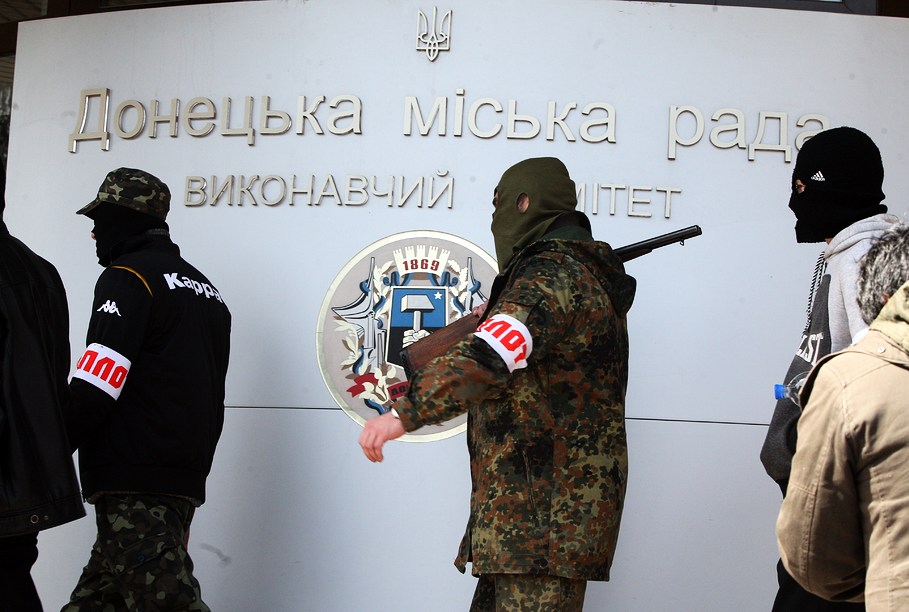Raimonds Vejonis, Minister of Defense: "The aim of hybrid war is to undermine the nation... What is hybrid war, how do we fight it, with what methods? These questions are crucial for our everyday lives. There's misinformation, bribery, economic pressure and other things we have known about for a long time and we need to prepare ways of dealing with a massive information war against us.”
James Sherr of the UK's Chatham House think-tank: "Hybrid warfare is a form of warfare that is designed to cripple a state before that state even realises the conflict has begun. It's a model of warfare designed to slip under NATO's threshold of perception and reaction.”
“The political aim is to destroy confidence between the Baltic states and the NATO alliance that they are part of, and the European Union that they are part of, and in doing so to change the internal political balance here so that parties that have a cordial relationship with Moscow are seen by the public as the parties that can offer real safety.”
Janis Berzins of the Security and Strategic Research Center at the Latvian National Defense College:
“The Russians have a mechanism they call 'reflexive control' which means making your opponent do what you want without the opponent realizing it. The Russians have made almost a special discipline of this reflexive control and they have been discussing it since the 1960s and 1970s. This is part of their concept of hybrid warfare.”
“The thing which is most important is how Western society is not prepared for this. That's not entirely bad, but it means they are ready to do things we are not ready to do any more. For example, you cannot think of NATO having a special operations force specialising in blackmail, assassination and kidnapping. We don't do things this way, but they do. Sending an army out without insignia is against international law – but they are not ashamed to do that.”
“To put it simply, it's like the Mafia. What does the Mafia do? It exploits your weaknesses. So what Latvia needs to do is shield itself, meaning it should address its own weaknesses.”
General Raimonds Graube, Latvia's Chief of Defense: “Hybrid warfare makes it necessary to do more helping other agencies such as the police and border guards who are responsible for peacetime conditions. The military trains for military tasks and police train for police jobs. So in a hybrid warfare situation defence forces have to be more adaptable than in conventional conditions.”
Andis Kudors of Latvia's Centre for East European Policy Studies: “Hybrid war is relatively cheaper than traditional warfare, though still you need to put resources into your media. Hybrid war does not require as many lives of your soldiers. If you use volunteers, separatists and criminals, they can die instead of your soldiers. That means fewer critics of your government when caskets with dead bodies start to come from the battlefield.”
Oleksiy Melnik, of the Razumkov Centre think-tank in Kiev: “Mr Putin is the key player and he is quite successful at playing a hybrid of aggressor and peacemaker at the same time. Being party to the war, Russia presents itself as a mediator that's fighting not against Ukraine, but against the USA and Brussels.
“The biggest problem is that he's allowed to do this. In calling this war a hybrid war we are trying to describe how it is being fought, but we are still hesitating to give it a proper name. In my opinion this is the beginning of a World War conducted by Russia not just against Ukraine but against the rest of the world.”
Alexander Vershbow, Deputy Secretary General of NATO: "Hybrid warfare isn’t new. But we have seen it applied in Ukraine with renewed vigour and ingenuity. While we don't see any immediate threat to NATO allies, we can't be complacent about the possibility it could be used against a NATO country.
"Hybrid warfare mixes hard and soft power. And so our response should also be multi-faceted. NATO and the European Union each have distinct hard and soft power tools. Our challenge is to bring them together so that we complement each other, and reinforce the essential measures taken by our member states.
"At NATO, we are looking at how we prepare for, deter, and – if required – defend against hybrid threats. Preparing means that we must strengthen our open and inclusive societies. We must also improve our intelligence and warning systems. We must protect our infrastructure, including our information infrastructure. And we must make sure we can take decisions quickly to deal with events that, at least initially, may be characterized by ambiguity and deception."
































